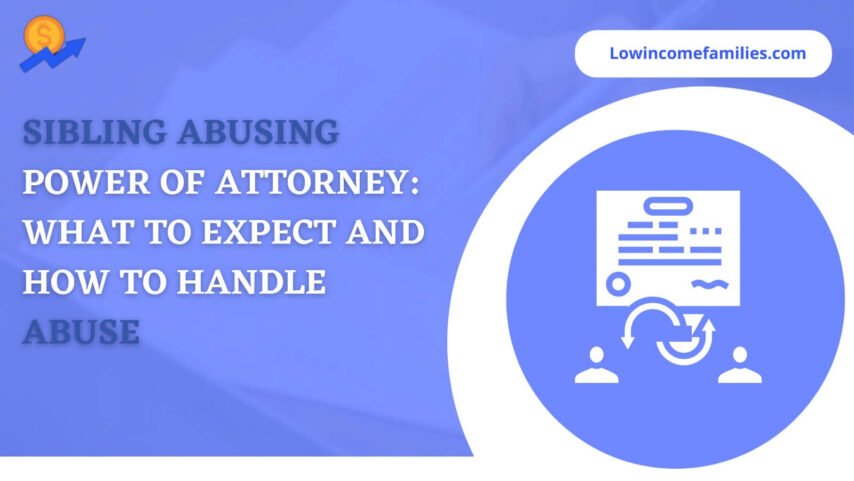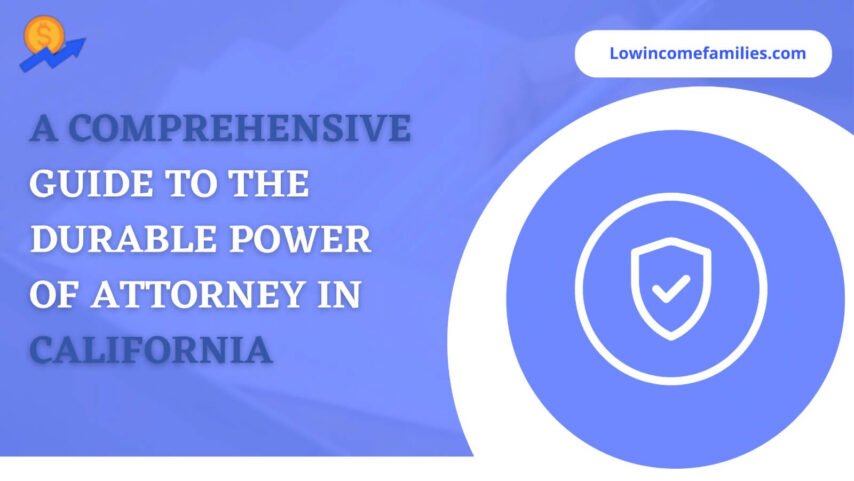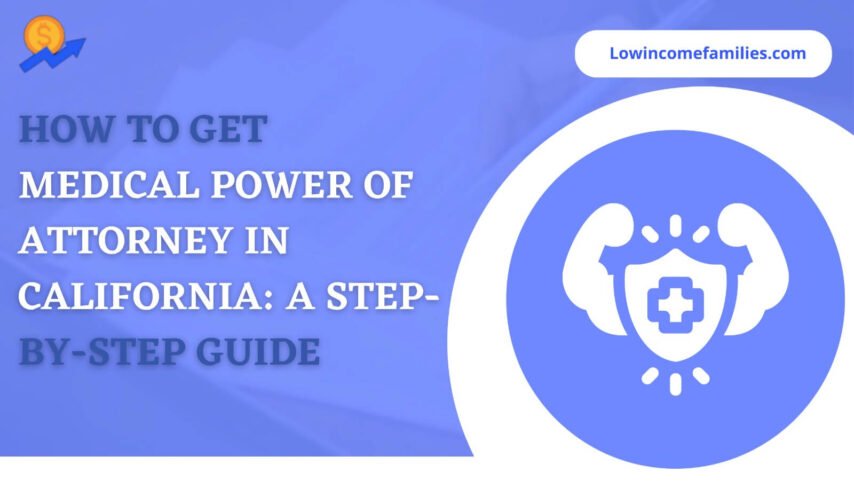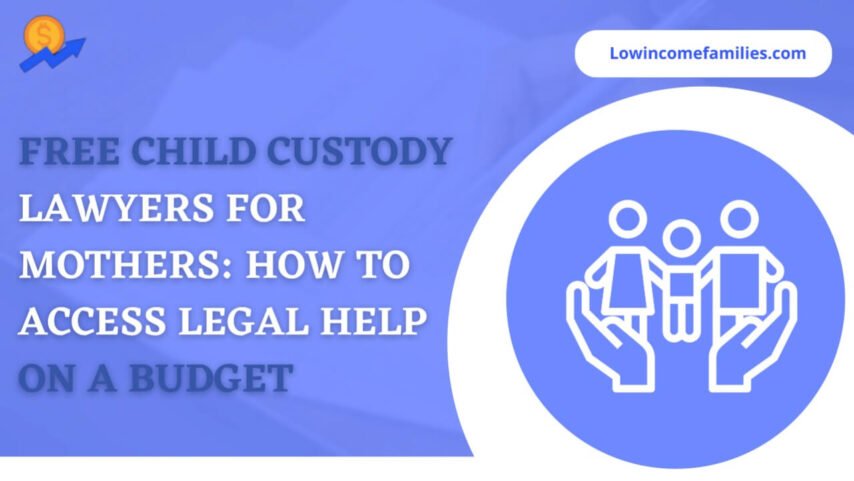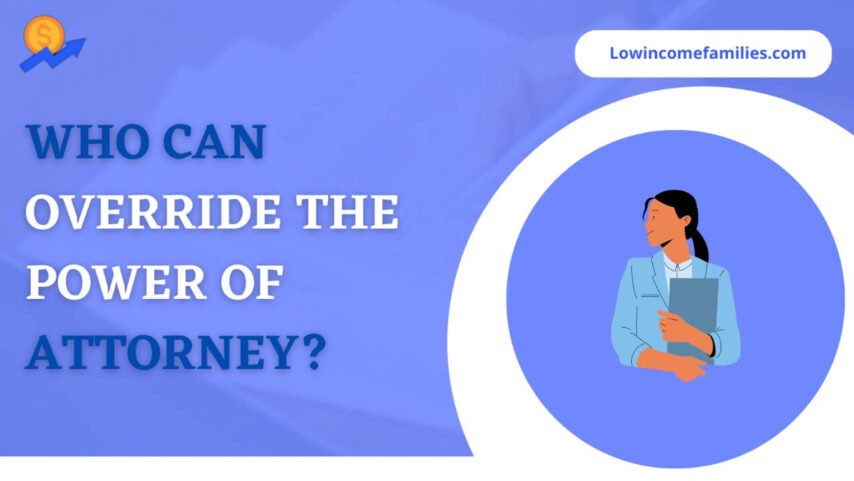Nobody should ever have to face the injustice of being the victim of the power of attorney abuse. Unfortunately, it happens more often than we’d like to think in certain families. In this blog article, gain insight into sibling abusing power of attorney and how to prepare for and handle abuse if it arises.
Learn how two siblings can share the power of attorney and its responsibilities. Buckle up and get ready to explore the situations surrounding sibling power of attorney today.
What Is Sibling Power Of Attorney?
Sibling power of attorney is a legal document that gives one person the authority to make decisions on behalf of another person. The person with this power is called an “agent.”
The agent can make decisions about the person’s medical care, finances, and living arrangements. They can also make other decisions, like whether or not the person should have surgery.
The agent must follow the instructions in the sibling power of attorney document. They also have to act in the best interests of the person they represent.
If the agent abuses their power, they can be removed. The court can also take away their authority if they misuse it.
How To Report Power Of Attorney Abuse?
There are several ways to report power of attorney abuse. You can contact the National Adult Protective Services Association (NAPSA) to make a report. You can also contact your state’s long-term care Ombudsman.
To find your state’s long-term care Ombudsman, visit the National Consumer Voice for Quality Long-Term Care website at long-term care.
You can also file a complaint with the state agency that regulates the power of attorneys. To file a complaint, you will need to provide the name and contact information of the power of attorney and the person they are acting on behalf of, as well as a detailed description of the abuse.
What Is The Penalty For Abuse Of Power Of Attorney?
The penalties for abuse of power of attorney can be civil and criminal. Under civil law, the court can order the agent to pay damages to the person harmed by the abuse. The court can also revoke a power of attorney and appoint a new agent. Sometimes, the court may even order the agent to pay punitive damages.
Criminal penalties for abuse of power of attorney depend on the state where the abuse occurred but can include fines and imprisonment.
Check Also: Who Can Override A Power Of Attorney?
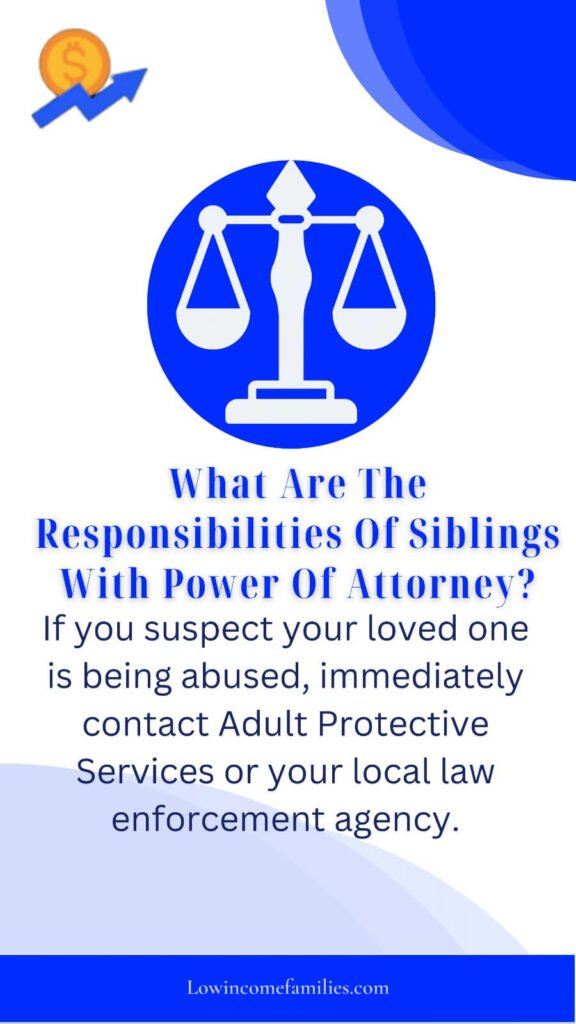
How Do You Prove The Power Of Attorney Abuse?
If you have the legal authority to act on behalf of your sibling, it’s important to understand what that means and how to prevent abuse.
First, let’s define power of attorney abuse. Power of attorney abuse occurs when someone with legal authority to act on another person’s behalf uses that authority for personal gain rather than for the benefit of the person they’re supposed to represent.
There are a few key ways to prevent power of attorney abuse :-
- Educate Yourself About What Your Legal Authority Entails :- Understand exactly what rights and responsibilities you have.
- Be Transparent With Your Actions And Keep Good Records :- Keep your siblings informed about what you’re doing on their behalf, and be sure to document everything in a clear and organized way.
- Communicate With Other Family Members :- If other people are involved in your sibling’s life (such as a spouse or other relatives), keep them in the loop about what’s going on and get their input before making any decisions.
- Avoid Any Potential Conflicts Of Interest :- If you have any financial interests that could benefit from actions you take as your sibling’s power of attorney, make sure they are disclosed upfront. Hence, everyone understands and agrees with them. This will help avoid any accusation of wrongdoing down the road.
- Involve An Attorney Or A Financial Advisor :- If you’re unsure of your authority or need advice on certain decisions, it’s always a good idea to have expert guidance from a lawyer or financial advisor.
To prove the power of attorney abuse, you must show evidence that the person with legal authority acted in their interests rather than in the interest of the sibling they are supposed to represent.
You will also need to show evidence of any conflict of interest or illegal activities (such as embezzlement) that transpired during their period of authority.
Finally, if any questionable activities were conducted by someone else who had access to financial information (such as a spouse), it would strengthen the case for power of attorney abuse if those activities could be linked back to the individual with legal authority.
Check Also: How to Get Free Child Custody Lawyers For Mothers 2023?
Pros And Cons Of Sibling Power Of Attorney
When it comes to giving your siblings power of attorney, there are pros and cons. On the one hand, having a sibling with power of attorney can help if you ever need someone to make financial or medical decisions on your behalf.
On the other hand, there is always the potential for abuse, so it’s important to have a plan in place in case that happens. The biggest pro of giving your sibling power of attorney is that you know they’ll be there for you if you ever need them.
If you’re ever in a situation where you can’t make decisions for yourself, your sibling can step in and ensure that your best interests are taken care of. They’ll be able to pay your bills, manage your finances, and make healthcare decisions if necessary.
Of course, there are also some cons to giving your sibling power of attorney. One of the biggest risks is that they could abuse their power. If you have any concerns about this, it’s important to talk to your sibling ahead of time and set some ground rules.
You should appoint another person as a backup decision-maker. Finally, ensure you keep all of your important documents safe and secure so that only the people you trust can access them.
How Long After a Person Dies Will Beneficiaries Be Notified
What Are The Responsibilities Of Siblings With Power Of Attorney?
Siblings with power of attorney have a few key responsibilities when caring for their elderly or disabled loved ones. First and foremost, they must always act in the best interest of the individual they represent.
This means making decisions that align with the individual’s wishes, whether expressed verbally or in writing. In addition to acting in the individual’s best interest, siblings with power of attorney must communicate with all involved parties.
This includes regular updates to the individual’s primary care doctor, case worker, and other professionals involved in their care. Siblings should also document all relevant information, such as medication changes, weight, health status, etc.
Finally, siblings with power of attorney need to be prepared for abuse. Unfortunately, elder abuse is all too common, and sibling caregivers may be the first line of defense against it.
If you suspect your loved one is being abused, immediately contact Adult Protective Services or your local law enforcement agency.
Examples Of Potential Abuse Of Power Of Attorney By A Sibling
When it comes to estate planning, it’s important to consider what would happen if you become incapacitated and unable to make decisions for yourself.
One way to plan for this is to give a sibling power of attorney, which allows them to make financial and legal decisions on your behalf. However, there is potential for abuse of this power, so it’s important to be aware of the signs and know how to handle it if it does occur.
Some examples of potential abuse of power of attorney by a sibling include :-
- Making decisions that are not in your best interest.
- Ignoring your wishes or desires.
- Making unauthorized purchases or withdrawals from your accounts.
- Attempting to change your will or other estate planning documents.
If you suspect your sibling is abusing their power of attorney, you should contact an attorney immediately. They can help you investigate the situation and take steps to protect your interests.
Can Two Brothers Or Sisters Have Joint Powers Of Attorney?
Yes, two brothers or sisters can have joint powers of attorney. This means that each brother or sister would have the authority to make decisions on behalf of the other if one brother or sister is incapacitated. While this may seem like a good idea, there is potential abuse.
If one brother or sister is granted power of attorney over the other, they may be tempted to make decisions in their own best interest rather than what is best for the sibling.
Additionally, if there are disagreements between the siblings about what should be done, the situation can become very confusing and stressful for everyone involved.
It is important to consider all possible scenarios before granting power of attorney to another person, even a family member. Suppose you do decide to grant power of attorney to a sibling.
In that case, it is important to set clear boundaries and expectations upfront to avoid misunderstandings or conflicts.
How To Handle Abuse When A Sibling Has Power Of Attorney?
Abuse by a sibling with power of attorney is a difficult situation to handle. If a sibling abuses you with power of attorney, there are some steps you can take to protect yourself and get help.
First, it is important to understand that abuse by a person with power of attorney is against the law. If you are being abused, you have the right to contact the police or other law enforcement authorities.
If you are afraid to contact the police or other authorities because of threats from your abuser, other options are available. You can contact a domestic violence hotline for confidential assistance and support.
You may also want to consider getting a restraining order against your abuser. A restraining order is a legal order that requires your abuser to stay away from you and refrain from certain activities, such as contacting you or coming near your home or workplace.
If a sibling has abused you with power of attorney, it is important to seek help as soon as possible. Many resources are available to help victims of abuse, and you don’t have to suffer in silence.
Alternatives To Giving One Sibling The Responsibility Over Other Family Members
It can be difficult to decide who will take on the role of caregiver for elderly parents or other family members. If there is a disagreement among siblings about who should assume this responsibility, consider some alternatives to giving one sibling the sole responsibility over others.
One option is to share the responsibility among all siblings. This can work well if everyone can communicate and cooperate. However, it is important to make sure that each person understands their role and is comfortable with their responsibility level.
Another alternative is to hire a professional caregiver. This can be a good option if family members live far apart or have busy schedules that make it difficult to care for an elderly parent or relative full-time.
Professional caregivers can provide valuable support and services, and they can be hired on a temporary or permanent basis, depending on the family’s needs.
Finally, suppose one sibling is reluctant or unable to take on the role of primary caregiver. In that case, it may be necessary to consider other options, such as placing the family member in a long-term care facility.
This decision should not be made lightly, but it may be necessary in some cases to ensure that the person receives the care and support they need.
Conclusion :-
Sibling power of attorney can effectively provide assistance and support to a sibling in need. However, it is important to be mindful of the risks associated with this type of arrangement, particularly the potential for abuse or misuse.
If you are considering becoming a sibling power of attorney for another person, seek legal advice beforehand and familiarize yourself with all your rights and responsibilities to ensure that everyone’s best interests are upheld throughout the process.
Frequently Asked Questions
What is sibling power of attorney?
A sibling power of attorney is a legal document that gives you the authority to make decisions on behalf of your brother or sister if they cannot do so themselves. This may include decisions about their medical care, finances, and living arrangements.
What are my responsibilities as a sibling power of attorney?
As a sibling power of attorney, you must act in your brother or sister’s best interests. This means that you must make decisions that you believe are in their best interests, even if they are not what you would want for yourself.
What if I think my brother or sister needs support?
If you believe your brother or sister needs support, you must let your parents or another trusted adult know. Depending on the situation, they may be able to provide support or know other resources that can help. It is important to remember that many different types of support and resources are available and that it is ok to reach out for help.
What can I expect when executing a Sibling Power of Attorney?
When executing a Sibling Power of Attorney, you can expect to be granted a certain level of agent legal authority to make decisions on your behalf if necessary. This may include decisions related to your financial, medical, and legal affairs. This is not the same as a will, which is creating one’s estate plan.
How do I handle potential abuse of the Sibling Power of Attorney?
Potential abuse of a Sibling’s Power of Attorney should be taken very seriously. It is important to monitor how a power of attorney is used and ensure that the decisions are in your best interests. You should be able to contact the agent of your power of attorney regularly and should always remain informed about all decisions. You must contact a lawyer for legal advice and assistance if you suspect any potential abuse.
